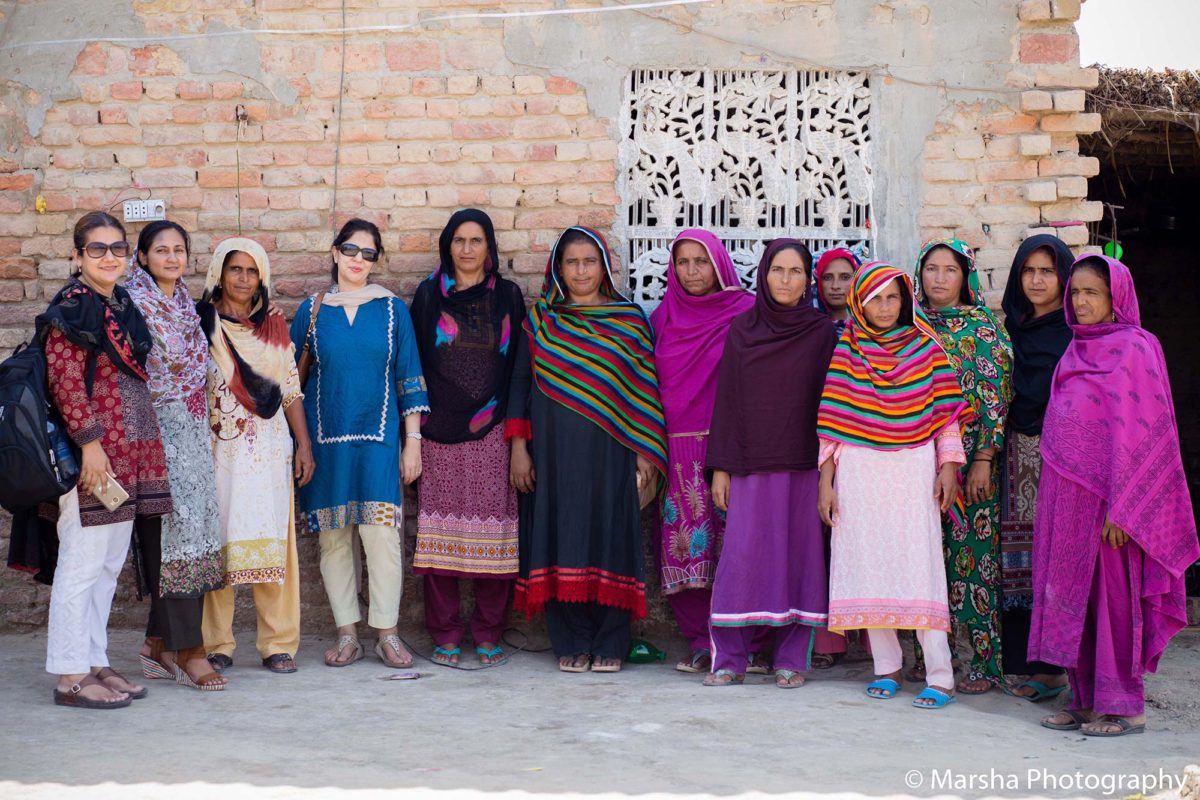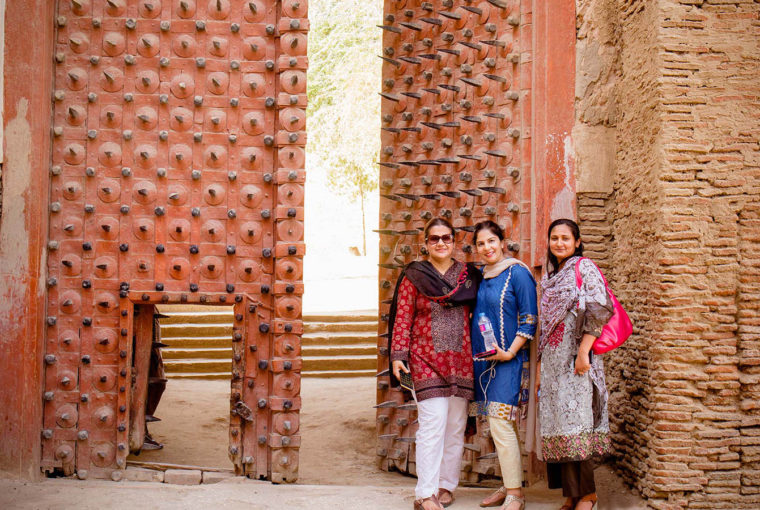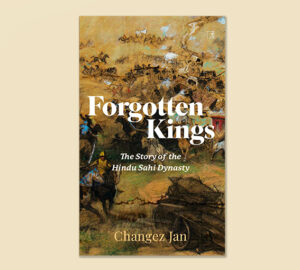Najia Siddiqui, Founder and Director, Adorn, shares her personal reflections after a recent trip to Khairpur, Sindh to meet the female artisans who weave magic with their fingers.
Photography: Maryam Ashraf
The road from Sukkur to Khairpur is dry and lined with fields of date palms, bananas and wheat. Roadside vendors, displaying colourful quilts in the most exquisite patterns, are one of the first sights that are seen as soon as you approach the city. This speaks of the heritage of the land and its talented artisans.
It also speaks of exploitation since the prices charged are a mere pittance of the worth of the quilts; with the female artisans getting a very nominal return for this painstaking work. Having no access to other markets, the women have little choice but to accept the paltry return given to them for their labour of love. Traditionally, these quilts were made only for household use and did not have any consumer value. With a growing appreciation of the craft, the demand arose for handmade products in the market.
The women artisans live in mohallas consisting of several mud-based homes enclosed within one boundary wall. Here the families live and work together. Communal space is used for livestock tending and even craftwork is divided among the women in the neighbourhood.
The art of rilli has been passed along from one generation to the next with women having a vast store of patterns in their mind and memory that they translate into their handiwork. One woman will do the cutting of the pattern while another will attach the pattern to the bottom cloth using delicate hand stitches. It’s an art that requires immense skill, in the replication of complex geometric designs onto cloth using hand-crafted techniques, without the help of patterns or machinery of any sort.
Many of these women never had the opportunity to learn how to read or write but have learned many skills through their traditional craft. The perfection of the stitches bears testament to their remarkable talent and intelligence.
The craft is helping support their livelihoods. When asked how they use the earnings from their work, their smiles are tinged with pride. “We pay our children’s school fees. We use this in our household expenses.” Not only are their earnings important in the running of the household, they also add to a woman’s worth and her say in the household. It has given her a voice and the ability to choose.
The importance of having access to non-exploitative markets is crucial to see the further development of the craft, along with an improvement in its quality. Adorn strives to encourage these women to push their skill to the next level and also give them good returns from the higher quality work that is being made. Showcasing these items online, and in local and international markets has helped to increase awareness about the heritage of craft in Sindh as well as helped support the development of the industry.
The women have little understanding of their importance in the preservation of history and heritage. They only know that this is something they have always done. It is part of their tradition; and it is a crucial part of their lives køb viagra.





